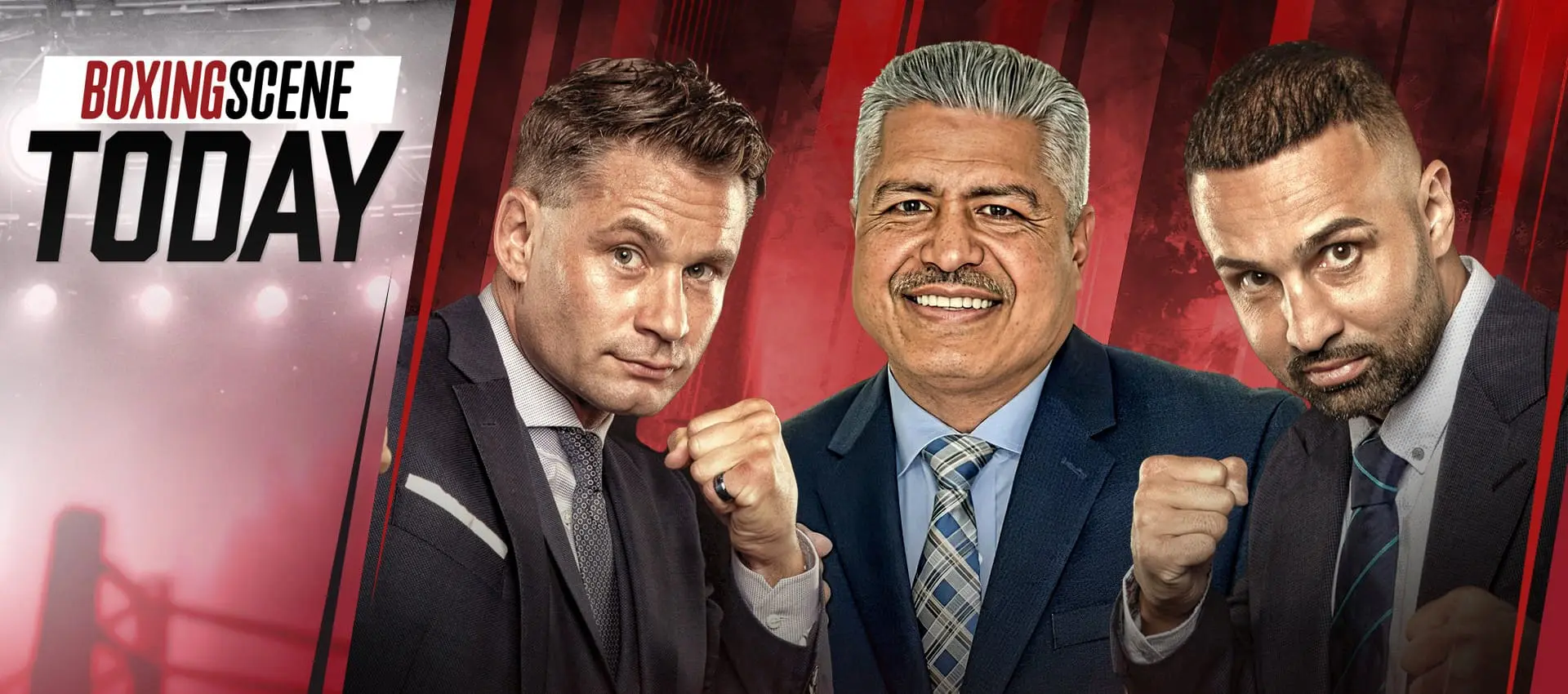
Saturday | Jul 19, 2025 | 7:00 PM EST
Jesse Rodriguez vs Phumelele Cafu
Diego Pacheco vs Trevor McCumby
Austin Williams vs TBA
DAZNFrisco, Texas

Saturday | Jul 19, 2025 | 12:30 PM EST
Oleksandr Usyk vs Daniel Dubois
Lawrence Okolie vs Kevin Lerena
Daniel Lapin vs Lewis Edmondson
DAZNLondon, United Kingdom

Saturday | Jul 26, 2025 | 8:00 PM EST
Claressa Shields vs Lani Daniels
Samantha Worthington vs Victoire Piteau
Caroline Veyre vs Licia Boudersa
DAZNDetroit, Michigan
'BoxingScene Today'Talk Show
Pauli, Algieri, and Coach Garcia breakdown today's top stories

Upcoming episode - coming soon
Boxing Interviews
Interviews with boxing biggest stars










